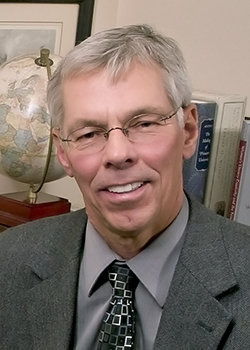By Peter Hansen and Paula Orth

As an undergraduate student drawn to history and philosophy, J. David Hoeveler found the perfect area of research in graduate school: the history of ideas.
“I leaned toward a merger of the two,” says the widely recognized scholar of American intellectual history. “History was a way of dealing with ideas in a very tangible, social, institutional context.”
Since the late 1970s, Hoeveler has produced a significant monographic study in American intellectual history roughly every five years. His research speaks to several broad themes of thought and culture and is recognized by scholars in American intellectual history, as well as those in the history of religion, education and political ideology.
Many people, Hoeveler says, view ideas as products of the social, economic or, material conditions of their time. “It’s actually much more of a live exchange between an individual and his/her environment,” he argues. “A struggle, often, in institutions is which world view-or which view of any particular issue-is going to prevail.”
From his work, one learns about the wellsprings of American conservatism over four centuries; about the religious, institutional, and political origins and structure of American higher education; and about how public intellectuals draw from past thought and shape contemporary political discourse.
Reviewers of his monographs are impressed by his capacity to open up larger worlds than seemed apparent at first glance, and praise him for his civil and respectful approach to the topics.
Attempting a summary of the six books he has published, Hoeveler says, “They really ask questions about how certain ideas get placed in institutions and what consequences come from it.”
Moreover, his current work on the history of science, evolution and intelligent design, and the origins of the Wisconsin Idea, promise more insight into the relationship between intellectual thought and public policy.
Hoeveler has enjoyed his academic freedom at UWM during 35 years as a professor. “It’s a place where you can define yourself as a scholar,” he says. “Within the departments, we teach the subjects we want to teach. They’re not programmed for us.
“There’s a tradition in Wisconsin of academic freedom, open inquiry. For a professor here, to define yourself as a scholar, they are behind you. There are very few impediments to going about it the way you feel best.”